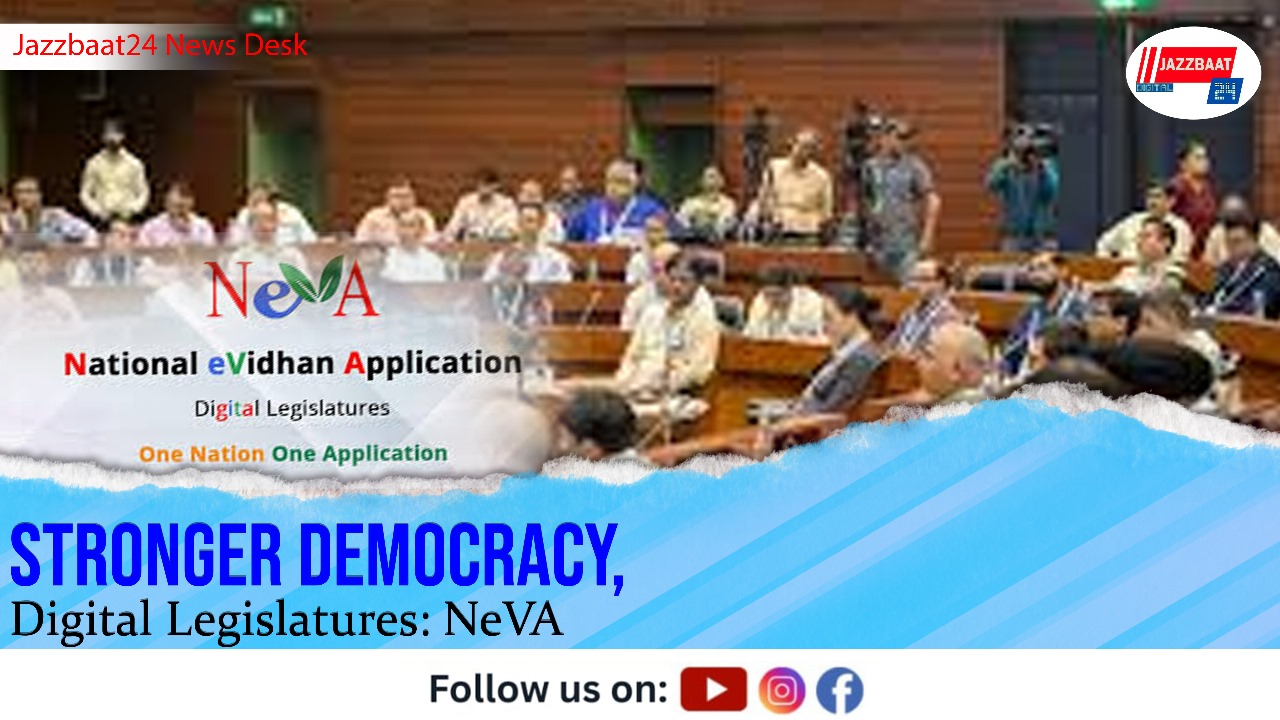
A major milestone in the development of open, efficient and fully digital legal system in India has been achieved with the end of the 3 rd National Conference on the National e-Vidhan Application (NeVA) in New Delhi. The New Delhi Resolution on NeVA 2025 commitment to collaborate with various states restates a national obligation to make digital innovation, collaboration, and inclusivity transform the very nature of legislative operation.
NeVA essentially is a democratic facilitator and a
technology. The project designed by the Ministry of Parliamentary Affairs is
meant to create a unified digital hub of all state legislatures so as to
achieve the intention of having One Nation, One Application. This integration
makes it easier to simplify legislation procedures, reduce the use of paper and
encourage real-time coordination between state assemblies and Parliament.
More than 100 delegates, such as, Secretaries of State
Legislatures and Nodal Departments attended the conference that was inaugurated
by Union Minister Kiren Rijiju. In his speech, the Minister rightly called NeVA
the very soul of our democracy because it plays the important role of
strengthening the parliament through digital transformation. His comments were
based on one fundamental fact: the twenty-first Century democracy must evolve
with technology to remain open, accountable, and adaptable.
Minister of State, Dr. L. Murugan, Parliamentary Affairs and
Information & Broadcasting in his farewell speech again reaffirmed that
NeVA is now being used by all state legislatures as a common legislative
platform. This standard framework achieves this by eliminating redundancy,
simplifying operations, and enhancing accountability and involvement in
governance. The measure of the progress can be seen through the achievements
listed during the conference. Having 20 Houses already running on the platform
and 28 Legislative Houses signing Memorandum of Understanding to be
implemented, NeVA has made over 90,000 questions and 600 bill processing. These
numbers do not just reflect digital achievements, but a change of thoughts,
paperwork is replaced by paperless governance.
The New Delhi Resolution on NeVA 2025 has a plan on how this
change can be furthered. It gives a high priority to the establishment of a
Committee of Secretaries, faster implementation, capacity building, old records
digitization, and AI and other new technology adoption. The National
Legislative Digital Index, particularly, is quite an interesting suggestion
because it may serve as a central database of legislative information, ensuring
its availability, comparability, and the fact that the institutional memory is
preserved in the long term.
Human factor in this digital transformation is also very
important. Dr. Satya Prakash, the Mission Leader of NeVA, says that the
legislators should be the bedroks of Viksit Bharat whereas NeVA is the digital
engine that will drive the vision. Making the software available is not the
only part of the issue, and other difficulties are the establishment of the
institutional capacity, training the personnel and promoting ownership. It is
not a matter of technology alone that can help to digitalize legislatures;
parliamentary institutions must be transparent, flexible and trusting.
Another activity in the conference was to acknowledge
cooperative federalism in action by awarding states that have gone live on NeVA
and best practices. The digital journey of every state legislature which is
determined by local priorities and challenges improves the efforts of the group
in creating a more responsive and connected democracy. India is approaching
Viksit Bharat 2047 and legislators need to go digital, paperless, and
data-driven. NeVA symbolizes this shift, a convergence of tradition and technologies
that strengthens the basis of the discussion, consideration, and judgment.
Continued investment in digital infrastructure, frequent
training, cybersecurity protections, and the involvement of smaller legislative
bodies must be the main focuses of the future. NeVA could reshape legislative
governance and serve as a global model for how democracy can flourish in the
digital era if it is executed consistently and cooperatively.